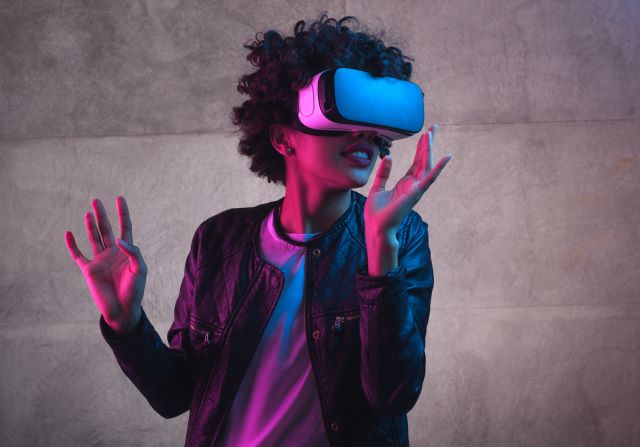
Last fall, Arizona State University (ASU) released a study that showed students learning biology in a virtual reality experience performed better and were more engaged.
According to ASU, students still use all the problem-solving, quantitative reasoning, and teamwork skills needed to learn and apply biological concepts. However, the Dreamscape Learn Lab experience transforms students into scientific explorers.
The project began just before the pandemic, ASU said. The Dreamscape Learn biology course was created in collaboration with Dreamscape Immersive, a company co-founded by Walter Parkes, former head of Dreamworks Motion Pictures and the writer or producer of hit movies including “WarGames,” “Gladiator” and the “Men in Black” series.
After Parkes met with ASU President Michael Crow, Alien Zoo was developed based on a movie concept Parkes, and Steven Spielberg had been working on.
“I was blown away at the Dreamscape Immersive experience – my brain immediately started calculating how to merge this technology into our curriculum,” Crow told ASU.
“As important as the immersive technology and pedagogy are, the unique thing here is embracing an emotional cinematic narrative in science teaching,” Parkes added.
When ASU’s Dreamscape Learn biology course debuted in the spring 2022 semester, Annie Hale, executive director of a learning research lab at ASU, led a team of research scientists who studied how well the students performed.
Half of the students were placed in the Dreamscape Learn course, which had three parts — a lecture, the virtual reality experience, and a three-hour lab. The other half was placed in the conventional approach, which did not include the VR experience.
The report found that overall, students in the Dreamscape Learn course had higher lab grades than those in the conventional method — 9% higher overall. The engagement was higher in the Dreamscape Learn group than in the non-Dreamscape Learn group. Students in the Dreamscape Learn labs were observed chatting, working together, and helping each other twice as often as those in the non-Dreamscape Learn lab.
Hale told ASU that engagement was stronger for students who reported that they experienced the sanctuary as a place they visited and not just an image they saw.
By spring this year, all introductory biology courses offered through the School of Life Sciences at Arizona State University (ASU) will include the Dreamscape Learn lab. More than 5,000 students are enrolled in those courses for spring.
“We believe VR is a medium that blends with other modes of learning rather than replacing them,” said Josh Reibel, CEO of Dreamscape Learn. “For every 10 minutes of VR, students engage in three hours of other learning and study in this program. Part of what’s so exciting about these early results is that the VR-based narrative motivates students to work hard to master deep scientific and quantitative concepts away from the VR.”
Read the full story here.
.@ASU is reimagining how #biology is taught. Using a personalized curriculum, Neo Bio combines skill-based lessons with narrative-driven Dreamscape Learn #VR lab experiences (@VisitDreamscape) — more: https://t.co/COS4CKIth2
— ASU News (@asunews) February 15, 2023
Once the VR helmet is on and the wrist sensors are snapped in, students in Biology 181 are transported into another world. 🦕
A new study shows that students who participated in ASU's Dreamscape Learn lab course performed better, and were more engaged.https://t.co/UzcHwbpr91 pic.twitter.com/DzRFSQWtlM
— Arizona State University (@ASU) October 26, 2022
The U.S. Army Corps of Engineers has been tasked with…
Brown and Caldwell, a leading environmental engineering and construction firm,…
Humboldt State University, one of four campuses within the California…